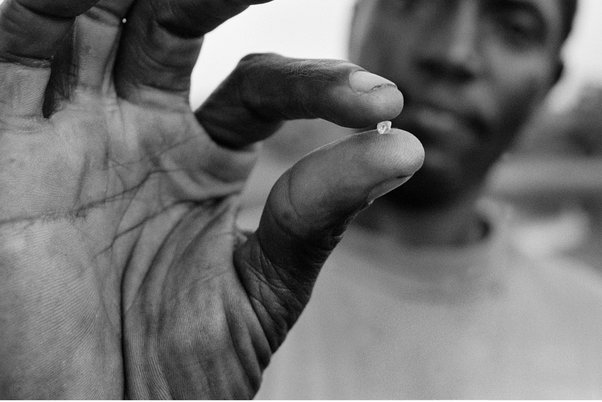Investigations by Global Witness have discovered that according to Lebanese Customs data, Lebanon imported rough diamonds worth US$156 million from the Republic of Congo (ROC), a country removed from the Kimberley Process Certification Scheme (KPCS) last year for having a “massive discrepancy” between its diamond production and exports.
While rough diamond trading outside of the KPCS is legal between non-participants, these imports from the ROC throw serious doubts on Lebanon’s commitment to counter the trade in conflict diamonds and cast a shadow on its current efforts to join the Kimberley Process.
In July 2004 the KPCS expelled the ROC from the Kimberley Process due to its consistent failure to comply with the Kimberley Process in preventing conflict diamonds from entering the legitimate diamond trade. ROC has virtually no diamond production of its own and acts as a conduit for illicit diamonds smuggled from neighbouring KPCS countries such as the Democratic Republic of the Congo and Angola.
The imports in question are clearly identifiable from Lebanese customs data publicly available online which show that in February US$90,000,000 and in March US$66,000,000 of industrial rough diamonds were imported. The same customs data shows that ROC general imports to Lebanon in February were US$90,027,238 and in March US$66,000,000 exactly.*
A Lebanese official confirmed to Global Witness that diamonds had come from ROC, but said that they were artificially overvalued and that an investigation was underway.
“By trading with a country removed for being in blatant violation of the scheme, Lebanon makes a mockery of the Kimberley Process,” said Corinna Gilfillan, from Global Witness.
“The Kimberley Process should not admit Lebanon until it has declared the value of its current stock of rough diamonds and is able to convincingly explain these significant imports from a country which is a known conduit for smuggled diamonds.”
Global Witness calls upon Lebanon to show its commitment to eliminating the trade in conflict diamonds by seizing these imports, declaring its current stock of rough diamonds and releasing a list of companies trading in rough diamonds.
Notes
The Kimberley Process Certification Scheme (KPCS) is an international governmental certification scheme aimed at preventing the trade in conflict diamonds. Launched in January 2003, the scheme requires governments and the diamond industry to implement import/export control regimes on rough diamonds to prevent conflict diamonds from fuelling conflicts and human rights abuses. The KPCS was negotiated by governments, civil society organisations and the diamond trade, in response to civil society campaigning against the trade in conflict diamonds. See www.kimberleyprocess.com for more information.
*In addition, the ROC sent US$15,000,000 of industrial rough diamonds to Lebanon in May 2004, one month after Lebanon was suspended and in violation of the ROC’s Kimberley Process commitments. Lebanon was suspended from the Kimberley Process Certification Scheme in April 2004, after it had been mistakenly admitted before it had passed the necessary legislation. Chairs Report to the Plenary, Kimberley Process meeting, October 2004.
The diamonds were imported under the HS Code 7102.21 (industrial rough diamonds) in three separate shipments, two in February and one in March. A further examination of imports by country and HS Code show that it was Congo who imported $156million dollars worth of diamonds which make up 100% of the imports in HS Code 7102.21.

